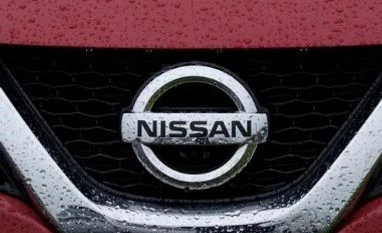Japanese carmaker Nissan will build two new models in Britain despite the vote to quit the EU, giving Prime Minister Theresa May her most important corporate endorsement since the Brexit referendum in June.
The decision to build the next generation of its popular Qashqai and X-Trail SUVs at Britain's largest car plant, rather than elsewhere in Europe, was won with what a source described as a government promise of extra support to counter any loss of competitiveness caused by Britain leaving the EU.
"This vote of confidence shows Britain is open for business and that we remain an outward-looking, world-leading nation," May said. Nissan employs around 7,000 people in Sunderland, where it built nearly a third of Britain's 1.6 million cars last year.
May's spokesman said Nisan was offered reassurances that conditions would remain competitive, but was not given explicit promises to compensate for any tariffs that might be imposed once the country leaves the bloc. Such a step could potentially open the floodgates to ultimatums from other companies.
The prime minister's opponents accuse her of failing to spell out her aims before talks to exit the EU, and of risking damaging tariffs on British exports in a so-called "hard Brexit" in order to impose limits on immigration that the EU would reject.
The opposition Labour Party said an ad hoc deal to protect a single factory was no substitute for a coherent strategy, and proved the government's policy was in "chaos".
"Are they now going to literally decide factory by factory what support they're going to give?" finance spokesman John McDonnell told an audience in London on Thursday. "We need a comprehensive strategy on access to the single market."
Also Read
FOREIGN OWNED
Britain's big carmakers are nearly all foreign-owned and ship more than half of their exports to the other 27 countries in the European Union, making the industry's future one of the big question marks hanging over Britain's plan to quit the bloc.
The major car companies and their labour unions had collectively warned that the June vote would make Britain a less-attractive destination for foreign investment. Nissan in particular had threatened to halt spending unless the government guaranteed it would be protected.
Chief Executive Carlos Ghosn, who met May earlier this month, said the British government had promised to ensure the competitiveness of the plant.
"The support and assurances of the UK government enabled us to decide that the next generation Qashqai and X-Trail will be produced at Sunderland," he said.
Japan's Nissan is part of an alliance with French carmaker Renault, its biggest shareholder. Ghosn runs both companies.
Other automakers have made clear they would be looking for similar reassurances from the government for their future investments.
The chief executive of Britain's biggest carmaker, Jaguar Land Rover, owned by India's Tata Motors, told Reuters last month that it would want a level playing field were Nissan to get a compensation deal.
The Sunderland plant has been a point of pride for May's Conservative Party since then-Prime Minister Margaret Thatcher lured Nissan to open it in 1986, beginning a recovery in British carmaking that had nearly collapsed in the 1970s.
Since then, Nissan has invested nearly 4 billion pounds ($5 billion) in the site, supported by many tens of millions of pounds worth of government aid. The Qashqai has been built there for a decade. The decision to build the new X-Trail there could create hundreds of jobs in the next few years, a Nissan spokesman said.
GOVERNMENT SUPPORT
The Nissan spokesman said discussions were also ongoing between the firm and the government over how Britain could support and encourage the uptake of electric vehicles, a key area for the company.
Nissan made the formal announcement on the long-awaited Qashqai decision after it was reported by Reuters. A company source told Reuters that the decision had been taken at a meeting of the company's executive committee this week, following a visit to Japan last week by British business minister Greg Clark.
A separate person familiar with the situation told Reuters that the British government had pledged in writing to provide additional relief to Nissan in the event that Brexit makes the Sunderland plant less competitive.
Assurances from the government had helped the firm bring forward its decision, which had originally been expected early next year, the company spokesman said.
The Sunderland area, like other parts of England's industrial north, voted heavily in favour of Brexit on June 23, despite car manufacturers and their unions campaigning to stay in.
Alexander Taylor, a 65-year old Sunderland pensioner who backed Brexit, told Reuters that Thursday's announcement proved that those campaigning to stay in the European Union had exaggerated the threat of a business exodus if Britain left.
"It just goes to show that the Remainers got it 100 percent wrong," he said. "What it shows is that Nissan is not stupid."
)